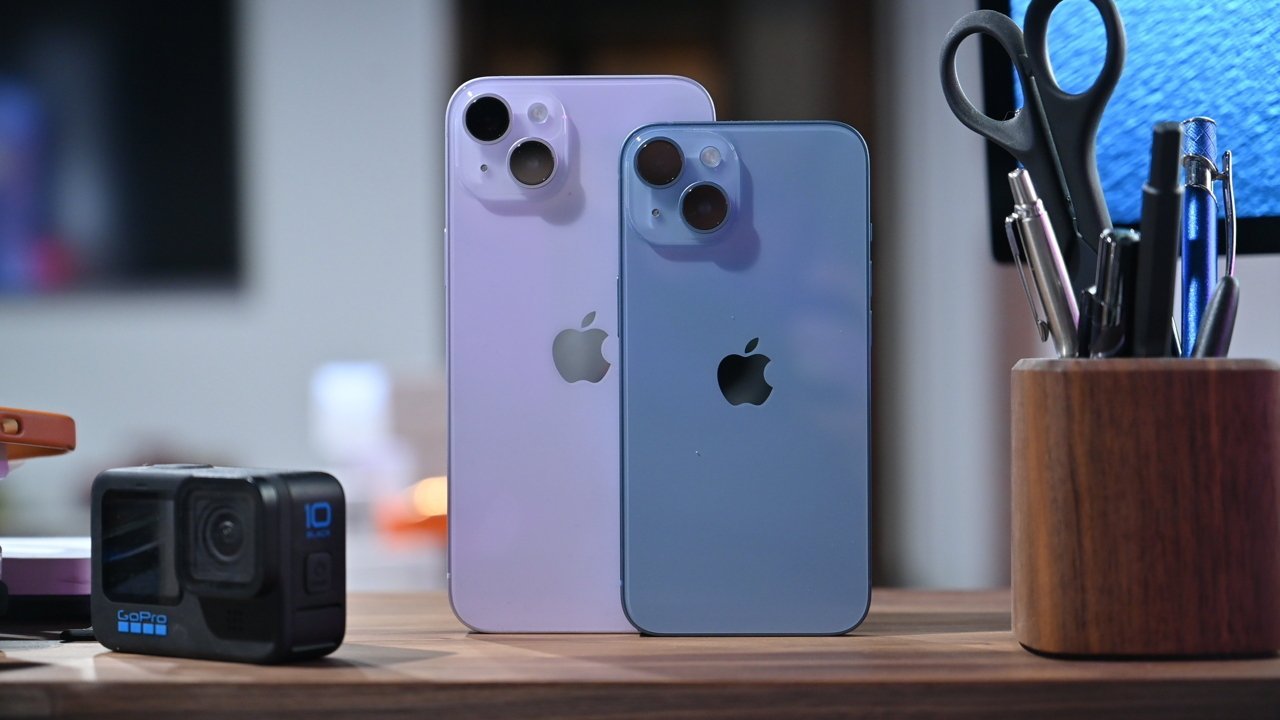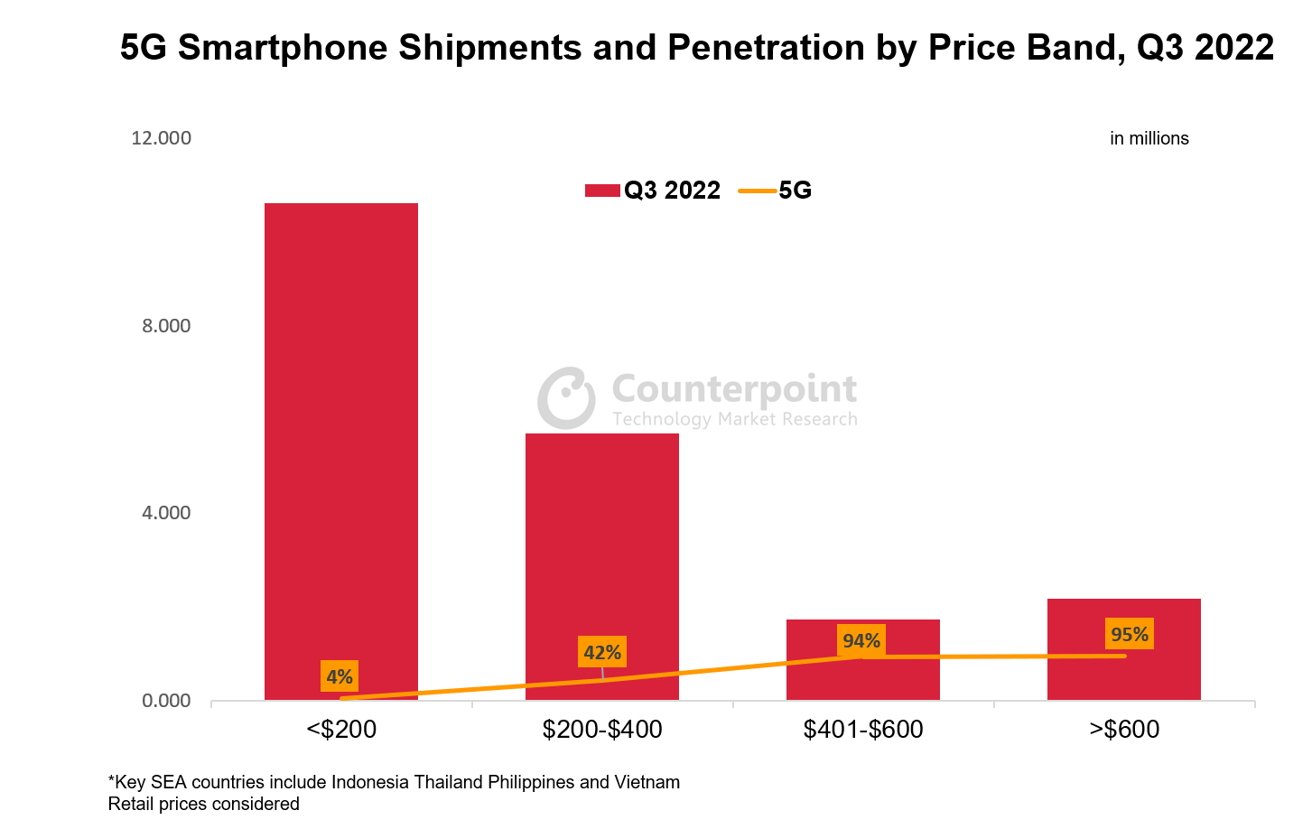New research claims that while total smartphone shipments dropped dramatically in Southeast Asia during the third calendar quarter of 2022, Apple's iPhone saw a 63% increase year over year.
In 2019, Apple was seeing competition in the Southeast Asia market from smartphones that were nearly always considerably cheaper than the iPhone. Today with economic pressures meaning the market dropped 10% in Q3 2022, however, Apple has continued to see a significant rise.
According to Counterpoint Research, economic uncertainty across the region is responsible for the lower than expected sales. That drop is chiefly in the phones that cost $200 or lower, though, while those premium models at $400 or greater, have done better.
Shipments of lower cost smartphones dropped 24% YOY, while premium models rose 29% over the same period.
"There were some brand-level hits and misses too in Q3 2022," writes Counterpoint Research. "While Samsung shipments fell 13% YoY, Apple's shipments were up 63% YoY across all the key countries."
Counterpoint notes that Vietnam appears to be "grabbing iPhones at a faster rate than its neighbours." Buyers in Thailand and the Philippines have reportedly been drawn to 5G, but a lack of 5G coverage means demand is softer in Vietnam and Indonesia.
The research company expects that lower than predicted sales means that manufacturers will have inventory of older smartphones. Counterpoint says it expects to see incentives such as more trade-in offers.
 William Gallagher
William Gallagher









 Charles Martin
Charles Martin

 Malcolm Owen
Malcolm Owen


 Christine McKee
Christine McKee
 Wesley Hilliard
Wesley Hilliard








8 Comments
Simple economics. People who can afford premium products like the iPhone are less likely to be affected by downturns in the economy. Since the bulk of Samsung’s sales are in the low-end sector they got creamed, something the ‘yeah-but’ crowds ignores. Yet another reason Apple has chosen to stay out of the low-end market, and with good reason.
In the near term, US preventing China from developing/using advanced chips will dampen the enthusiasm of Chinese toward smartphones. The remnant effect of this decrease of passion will reduce Chinese smartphone makers in developing new smartphones. Because they see there is no future to match Apple iPhones. Why bother?